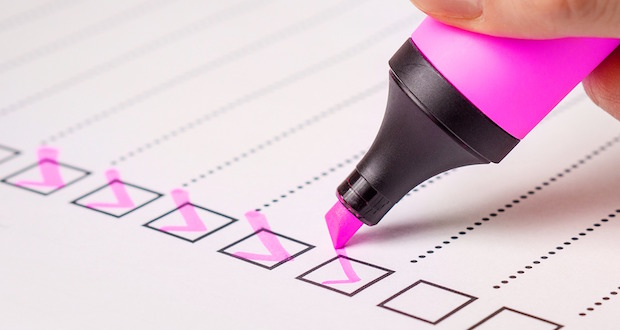
For many hotels, monitoring staff adherence to the defined operating standards is still a manual and paper-based process. From log books and signing off on an inspection, to to-do lists and inspections of inspections, it’s hard to keep track. And while it is the staff’s responsibility to get the job done, these inefficient processes can put operations at risk. Fortunately, advancements in technology create new ways to manage staff governance and compliance-related issues.
The Importance of Compliance
Consider this for a moment: what if hotels measured and monitored compliance of fire extinguisher inspections, something that could mean the difference between life and death, with the same thoroughness as used to ensure the cleanliness of restrooms—a checklist. The reality is, hoteliers cannot know for sure when the inspection was actually completed and by whom, but need to cross their fingers and hope for the best or inspect the inspection.
Now, contemplate all the other operating practices where hotels rely on the honor system to get things done—what happens if it doesn’t get done? Fire patrol, security rounds, shut down procedures, and emergency action plans keep guests safe. Routine maintenance and ad-hoc tasks—which change based on the guest’s status, weather conditions, and repairs—must be completed to ensure optimal performance. On top of this, hotels must also ensure compliance with third-party requirements—insurance, government regulations, property rating programs, and becoming an approved vendor. How can hoteliers ensure that staff are actually where they need to be when needed to guarantee compliance and performance?
High Costs, High Liabilities
Ensuring staff governance and compliance is a top priority for hotels. Even the smallest of tasks not completed can have big consequences. Social media created a world in which our ability to keep a secret has virtually been eliminated. In a matter of seconds, a picture or comment can go viral and a brand can be associated with that incident.
To help put that in perspective, consider a study by Cornell University in 2016 that showed that when hotels improve their rating on TripAdvisor by a point, they could experience 39 percent increase in ADR, up from 11 percent. The key here is ensuring it is a positive review vs. a complaint, which means making sure staff execute without a hitch.
On top of that, hospitality companies, like all public-facing organizations, must adhere to strict operating regulations, where the costs of failing to comply can run deep. From accidents, injuries, and lawsuits to insurance eligibility, or ADR, RevPar, and occupancy, there is always something to worry about.
Upgrading Operating Standards
To ensure a safe, secure, and risk-free environment, hotels have detailed policies and procedures outlining what needs to be done to adhere to requirements. While many hotels have a clear understanding of what needs to be done, they are still reliant on outdated manual or paper-based procedures limiting the staff’s ability to successfully coordinate, execute, and validate that all required tasks were completed as outlined. Hoteliers must evolve operating standards and how executions are monitored, because if it isn’t monitored, it can’t be measured.
Fortunately, advancements in technology have opened the door to new use cases. Near-field communication (NFC) tags are widely available in a broad spectrum of formats, some for less than a dollar, so hotels can tag any location or object, big or small. Smartphones double as NFC readers and telephone extensions reduce the number of tools needed to invest. Communicating IoT and machine data no longer require an extensive investment in IT, making it faster and more affordable to action that data. It’s also now simpler to integrate operating systems.
By combining the power of readily available technologies, hoteliers can cost effectively re-imagine how to measure and manage governance and compliance of staff. Automating to-do lists, tracking progress of daily responsibilities, sending automatic alerts when alarms are activated or staff are out of adherence, running historical reports to demonstrate compliance and report issues with detailed descriptions and pictures—these are just a few ways that technology can enhance hotel operating standards. By re-imagining how hotels measure and manage operating standards, hoteliers can improve the effectiveness and efficiency of staff and ultimately the guest experience.
About the Author
Rebecca Wormleighton is the vice president of sales and marketing for Zendelity, a company dedicated to delivering cost-effective solutions that enable the hospitality industry to differentiate and outperform within highly competitive markets. Wormleighton has extensive experience in hospitality, communications, customer experience, and enterprise product marketing/product management.











